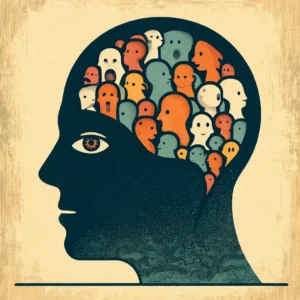Exploring the Benefits of a Ketogenic Diet for Bipolar Disorder and Schizophrenia
For many, the pursuit of effective treatments for mental health conditions is a continual journey. Interestingly, recent studies have highlighted a potential ally in this quest—the ketogenic diet. Particularly, a diet for bipolar disorder and other psychiatric conditions such as schizophrenia is gaining attention for its promising results. Here, we’ll delve into what bipolar disorder and schizophrenia are, who is affected by these conditions, and how a ketogenic diet might offer beneficial support.
Understanding Bipolar Disorder and Schizophrenia
What is Bipolar Disorder?
Bipolar disorder is a mental health condition characterized by significant mood swings, including emotional highs (mania or hypomania) and lows (depression). These fluctuations can affect sleep, energy levels, behavior, judgment, and the ability to think clearly. Episodes of mood swings may occur rarely or multiple times a year; while some individuals will experience emotional symptoms between episodes, others may not.
What is Schizophrenia?
Schizophrenia is another serious mental disorder in which individuals interpret reality abnormally. It can result in a combination of hallucinations, delusions, and extremely disordered thinking and behavior. Contrary to popular belief, schizophrenia is not a split personality or multiple personality disorder. The symptoms of schizophrenia can be very disabling and can include a range of cognitive, behavioral, and emotional dysfunctions.

Who Gets These Disorders?
Both disorders typically manifest in late adolescence or early adulthood, although they can also start during later years. The exact causes are unknown, though a combination of genetics, environment, and altered brain chemistry and structure may play roles.
The Ketogenic Diet for Bipolar Disorder: A New Hope

Recent research, as published in Science Direct, suggests that a ketogenic diet—a regimen low in carbohydrates and high in fats—may significantly improve the symptoms of mental health issues such as bipolar disorder and schizophrenia. This study involved 23 participants primarily diagnosed with bipolar disorder. Remarkably, 69% of these participants experienced an average improvement in their condition by 31% after adhering to the diet for four months.
Remarkably, 69% of these participants experienced an average improvement in their condition by 31% after adhering to the diet for four months.
How Does the Ketogenic Diet Work?
The ketogenic diet is known for its potential to alter the primary energy sources for the brain, providing an alternative energy source in the form of ketones instead of glucose. This shift could help bypass some of the metabolic issues seen in psychiatric conditions. Dr. Shebani Sethi from Stanford Medicine, the lead author of the study, suggests that this diet might be used as a supplemental treatment, emphasizing the necessity to continue traditional treatments while exploring dietary changes.
The ketogenic diet is known for its potential to alter the primary energy sources for the brain, providing an alternative energy source in the form of ketones instead of glucose. This shift could help bypass some of the metabolic issues seen in psychiatric conditions.
Clinical Implications and Future Directions
A Promising Adjunct Therapy
The findings from the study indicate a “clinically meaningful improvement” in 79% of the participants who exhibited baseline symptoms. The diet was not only effective but also feasible and well-accepted as an adjunct therapy alongside neuroleptic medications.
The findings from the study indicate a “clinically meaningful improvement” in 79% of the participants who exhibited baseline symptoms. The diet was not only effective but also feasible and well-accepted as an adjunct therapy alongside neuroleptic medications.
Future Research on the Ketogenic Diet for Bipolar and Other Disorders
With such promising results, further research is encouraged to explore deeper into the relationship between metabolic health and mental health. This research opens up a novel conversation about the role of diet in managing psychiatric illnesses and offers hope and a new avenue of treatment for those affected by these challenging conditions.
Final Thoughts
As we continue to explore the relationship between diet and mental health, the ketogenic diet offers a promising, supportive strategy for managing conditions like bipolar disorder and schizophrenia. Of course, it’s crucial for individuals to consult healthcare professionals before making significant changes to their diet or treatment plans. As research evolves, the hope is that more individuals will find relief and improvement through integrated approaches to mental health management.
Embracing a ketogenic diet for bipolar disorder as part of a broader treatment strategy can be a hopeful path for many seeking better health outcomes, highlighting the importance of dietary choices in our overall mental health strategy.
Hopeful stuff!
References:
- Pilot study shows ketogenic diet improves severe mental illness. Standford Medicine
- Ketogenic Diet Intervention on Metabolic and Psychiatric Health in Bipolar and Schizophrenia: A Pilot Trial. Science Direct
- Ketogenic-Mimicking Diet as a Therapeutic Modality for Bipolar Disorder: Biomechanistic Rationale and Protocol for a Pilot Clinical Trial. PubMed

